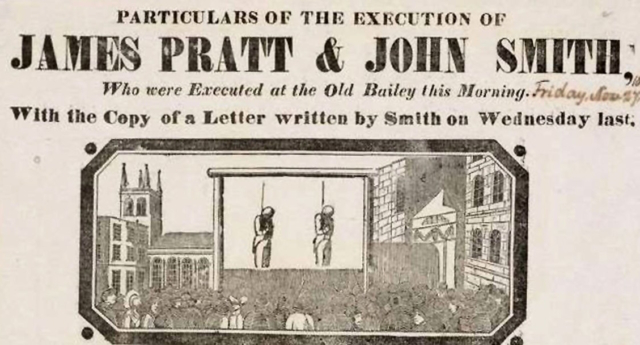Sermon on Philippians 3:4b-14 offered to the people of the Church of the Redeemer in Bryn Mawr, Pennsylvania.
 Like many of you, I woke up on Monday morning to the news that 59 people had been murdered and hundreds injured by a gunman in Las Vegas last Sunday night. Like many of you, I was horrified and grief-stricken; I found myself weeping in my car as I listened to reports about the massacre. As troubled as I was by the news itself, I was just as dismayed by the way people reacted to the tragedy. It wasn’t that anyone said anything particularly offensive or insensitive; it was that the reaction was so predictable. On Monday night, the late night comedy hosts “got real” in their opening monologues. By Tuesday, some politicians were insisting that it was not the time to discuss gun control while others were insisting that it was. On Wednesday, news outlets posted the article they always publish when mass shootings occur. By Thursday, conspiracy theories began to circulate. Even the reaction of the church felt like it was following a grim routine. At Redeemer, we tolled the bells, just as we did after the Pulse nightclub, just as we did after Sandy Hook. It was as if everyone had been assigned a role in some grotesque drama designed to help us make sense of the fact that 59 more people were dead.
Like many of you, I woke up on Monday morning to the news that 59 people had been murdered and hundreds injured by a gunman in Las Vegas last Sunday night. Like many of you, I was horrified and grief-stricken; I found myself weeping in my car as I listened to reports about the massacre. As troubled as I was by the news itself, I was just as dismayed by the way people reacted to the tragedy. It wasn’t that anyone said anything particularly offensive or insensitive; it was that the reaction was so predictable. On Monday night, the late night comedy hosts “got real” in their opening monologues. By Tuesday, some politicians were insisting that it was not the time to discuss gun control while others were insisting that it was. On Wednesday, news outlets posted the article they always publish when mass shootings occur. By Thursday, conspiracy theories began to circulate. Even the reaction of the church felt like it was following a grim routine. At Redeemer, we tolled the bells, just as we did after the Pulse nightclub, just as we did after Sandy Hook. It was as if everyone had been assigned a role in some grotesque drama designed to help us make sense of the fact that 59 more people were dead.
In some ways, this isn’t all that surprising. After all, we often turn to familiar narratives to comfort us when we are grieving. We look for ways to distract ourselves from the pain we feel when we realize what human beings are capable of doing to one another. We try to make sense of these tragedies, even though we know in our hearts that they are senseless.
Paul certainly understood this impulse to make sense of the world. In his letter to the Philippians, Paul explains that he once found meaning by positioning himself within the story and traditions of Israel. By his own account, Paul was completely devoted to the Jewish tradition. He asserts that he was “circumcised on the eighth day, a member of the people of Israel, of the tribe of Benjamin, a Hebrew born of Hebrews; as to the law, a Pharisee; as to zeal, a persecutor of the church; as to righteousness under the law, blameless.” It might be tempting to gloss over these verses as just another list in Paul’s letters, but that fails to recognize the value Paul placed on these identity markers. They represented his pedigree: the fact that he came from the right family and did everything that was expected of him. More importantly, these defining characteristics helped Paul know exactly who he was and what God expected him to do. If Paul wanted to understand his place in the world, all he had to do was consider his identity as an Israelite. Paul’s birth allowed him to tap into a heritage and a shared narrative that gave his life meaning. Paul was “confident in the flesh” because his religious identity helped him to make sense of the world.
For this reason, it is nothing short of remarkable that Paul goes on to write, “whatever gains I had, these I have come to regard as loss because of Christ.” It’s not as though Paul was looking for a change when he became an apostle. Paul didn’t hit rock bottom before his conversion. He was an influential man who understood his place in the world better than most. And yet, Paul regards this identity as something to be cast aside. In fact, he describes that which he once held most dear a term that, literally translated, means “dung.” Paul is not demeaning his tradition of origin; he is simply demonstrating that his experience of Christ has completely overshadowed what he once prized. Paul’s “confidence in the flesh” is replaced by a confidence that “Christ Jesus has made him his own.” This kind of transformation demanded a great deal of philosophical courage. Paul’s conversion obliged him to abandon a tradition that helped him make sense of the world and embrace a worldview in which things were far less certain. Such a radical shift would have required something earth shattering, a fundamental reordering of the world as Paul knew it.
Ultimately, it was the resurrection of Jesus Christ that caused Paul to reevaluate the way he understood the world. For Paul, the resurrection is not an isolated incident. It is not just some miraculous event that proves how special Jesus was. Rather, the resurrection represents a fundamental shift in the ordering of things. Paul reasons that if the power of death has been nullified for even one individual, it must, by necessity, be nullified for everyone. The normal pattern has been disrupted: death is no longer the end of the story. The implications of this are profound. It means that life, once destined to end, now has a meaning that transcends every narrative we use to explain the world. The resurrection, in other words, invites us to adopt an entirely new perspective on reality. It challenges us to recognize with Paul that the world has been fundamentally transformed by Jesus Christ and the power of his resurrection.
In times like these, we often ask our faith to help us make sense of the world. We ask “why?” and expect Scripture or the Church to provide a clear answer and a clear path forward. The Christian faith, however, is not prescriptive. The Bible is much less concerned with how we act than it is with God’s action in the world. Moreover, our faith cannot make sense of that which is fundamentally senseless. In fact, our desire to find a reason for this tragedy prevents us from truly wrestling with the reality of what happened. What the Christian faith does provide in times like these is something much more valuable: an opportunity to reevaluate our perspective. Rather than helping us make sense of the world, our faith challenges us to look at the world differently. It asks us to adopt an attitude shaped by the resurrection. This can be a terrifying prospect, because it requires us to critically examine and sometimes abandon that which we hold most dear: whether it is the narratives that give us comfort when tragedy strikes or our inviolable assumptions about security and personal freedom. Nothing can be off the table when we adopt a perspective shaped by the resurrection, because nothing is unaffected by God’s undoing of death.
The only way we can adopt this perspective is if we share Paul’s confidence that “Christ Jesus has made us his own.” The only way we can honestly face a senseless and uncertain world is if we put our trust in the Providence of God. In our darkest moments, the gospel calls us to remember this fundamental truth of our faith: no matter what happens, we belong to God.
Advertisements Share this:




